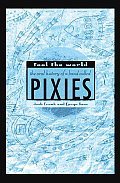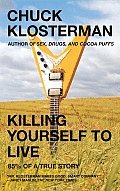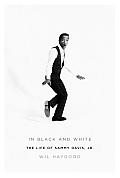 Fargo Rock City: A Heavy Metal Odyssey in Rural North Dakota
Fargo Rock City: A Heavy Metal Odyssey in Rural North Dakota by Chuck Klosterman
Let's go back in time to 1991. In Mobile, Alabama, an adolescent Brady was hunched over a guitar in his bedroom trying to figure out how to play Big Star, Teenage Fanclub, and Booker T & the MGs songs. Meanwhile, somewhere in western Pennsylvania, the big-haired, acid-washed jeans-wearing girl who would later become his wife was playing her Zeppelin records backwards and slow dancing to Skid Row's "I Remember You" at the YMCA.
Sure, in 1992, I would start listening to The Replacements, and gradually wean myself off of Warrant, but my love for the heavy stuff never quite went away. So, at first glance, Chuck Klosterman's book was most definitely for me.
Fargo Rock City has some truly inspired moments, such as the "jack factor" chapter, wherein Klosterman creates a list explaining how much money he would have to be paid never to listen to specific metal records again, and why. This stems from a mistrust of "essential records of (insert musical genre here)" lists, because no record is truly "essential" and if you were
really stranded on a desert island, you'd want a screwdriver and potable water, not a stack of Radiohead albums.
Also nice is the chapter where Klosterman explains the use of satanic imagery in heavy metal, and why Marilyn Manson is kind of brilliant ("It was easy for a vocal minority to turn drugs into the postmodern Lucifer... However, Marilyn Manson was the first
metal guy smart enough to capitalize on a new era in spook rock: In the 21st century, Satan can be smoked, snorted, and shot").*
So, reading this book was like being told that everything I thought about music in the 8th grade was not only right, it was
genius. And I like being told that I was cool in 8th grade, because in reality, I was probably not, and wouldn't have been regardless of whether I was listening to Paula Abdul or AC/DC.
But, if you're going to write a book about heavy metal, at some point, you're going to have to address gender, and here is where Klosterman fumbles big time.
(BIG DISCLAIMER: This beef encompasses a mere two chapters in a book I otherwise thoroughly enjoyed. So let's not throw the Warrant out with the Whitesnake.)**
First, he sets up straw phalluses like the Whitesnake video for "Here I Go Again," then seems to expect brownie points for pointing out that it's sexist. The conclusion he comes to on the whole issue of sexism in heavy metal is: "Life makes art. Life makes heavy metal. To attack sexism in the latter is no different from pretending it doesn't exist in the former."
As an argument, this is about as convincing as saying, "Since God created man, and man made the Transformers, the Transformers are like a gift from God."*** Klosterman is just side-stepping the question.
However, this is not my main problem with the book. My main problem with the book is Klosterman's barely concealed contempt for female metal fans (or music fans for that matter). He seems to believe that men are somehow hard-wired for band loyalty, while women are fickle, mindlessly squealing for the next flavor of the month. At one point, he says, "Bands who depend on support from females inevitably crash and burn." Sure, this may be true of bands who depend on support from
teenage females, but then, those groups aren't even "bands."
About six years ago, I wrote an essay about how female rock and roll fans are regarded. It was late one night, and I was feeling crabby about some lyrics in a Who song. I buried it in the blog
here, because it's kind of long, but you can read it if you wanna. It sums up all my feelings about
Fargo Rock City and gender.
That aside, if you ever slow danced to Skid Row at the YMCA and liked it, or played your Zeppelin records backwards, or knew all the words to "You Shook Me All Night Long" without actually knowing what they all meant, this book is for you.
_______________________
* I firmly believe that the cautionary video
Hell's Bells: The Dangers of Rock N' Roll created far more metal fans than it deterred.
** "Down Boys" is a really good song.
*** Thank you again,
Clerks 2

















